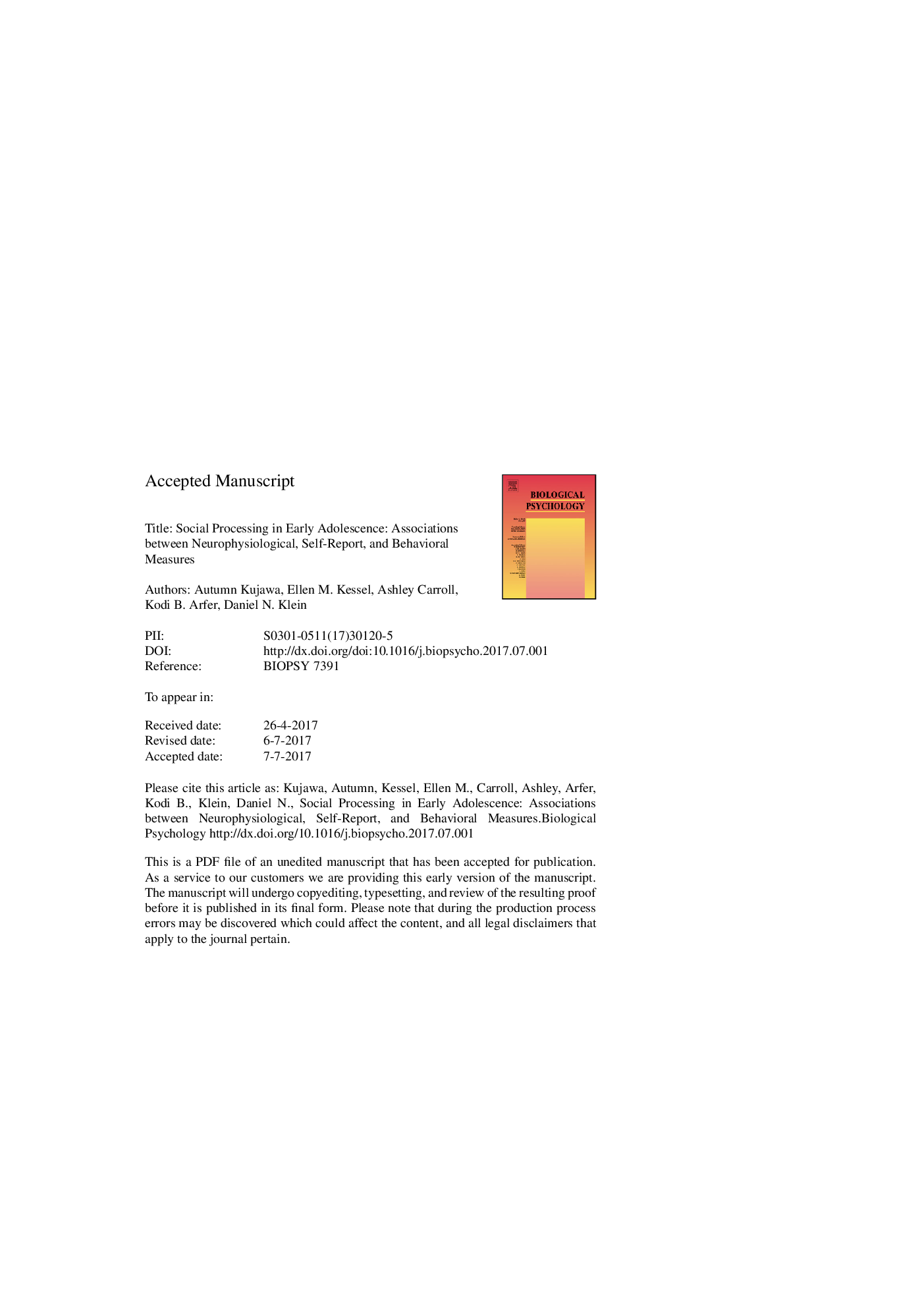| Article ID | Journal | Published Year | Pages | File Type |
|---|---|---|---|---|
| 5040380 | Biological Psychology | 2017 | 32 Pages |
Abstract
Peer relationships play a major role in adolescent development, but few methods exist for measuring social processing at the neurophysiological level. This study extends our pilot study of Island Getaway, a task for eliciting event-related potentials (ERPs) to peer feedback. We differentiated ERPs using principal components analysis (PCA) and examined associations with behavioral and self-report measures in young adolescents (NÂ =Â 412). PCA revealed an early negativity in the ERP enhanced for rejection feedback, followed by a series of positivities (consistent with reward positivity [RewP], P300, and late positive potential) that were enhanced for acceptance feedback. Greater self-reported task engagement correlated with a larger RewP to acceptance and lower rates of rejecting peers. Youth higher in depressive symptoms exhibited a blunted RewP to social acceptance and reported lower engagement. Results highlight ERP components sensitive to peer feedback that may inform understanding of social processes relevant to typical and atypical development.
Related Topics
Life Sciences
Neuroscience
Behavioral Neuroscience
Authors
Autumn Kujawa, Ellen M. Kessel, Ashley Carroll, Kodi B. Arfer, Daniel N. Klein,
